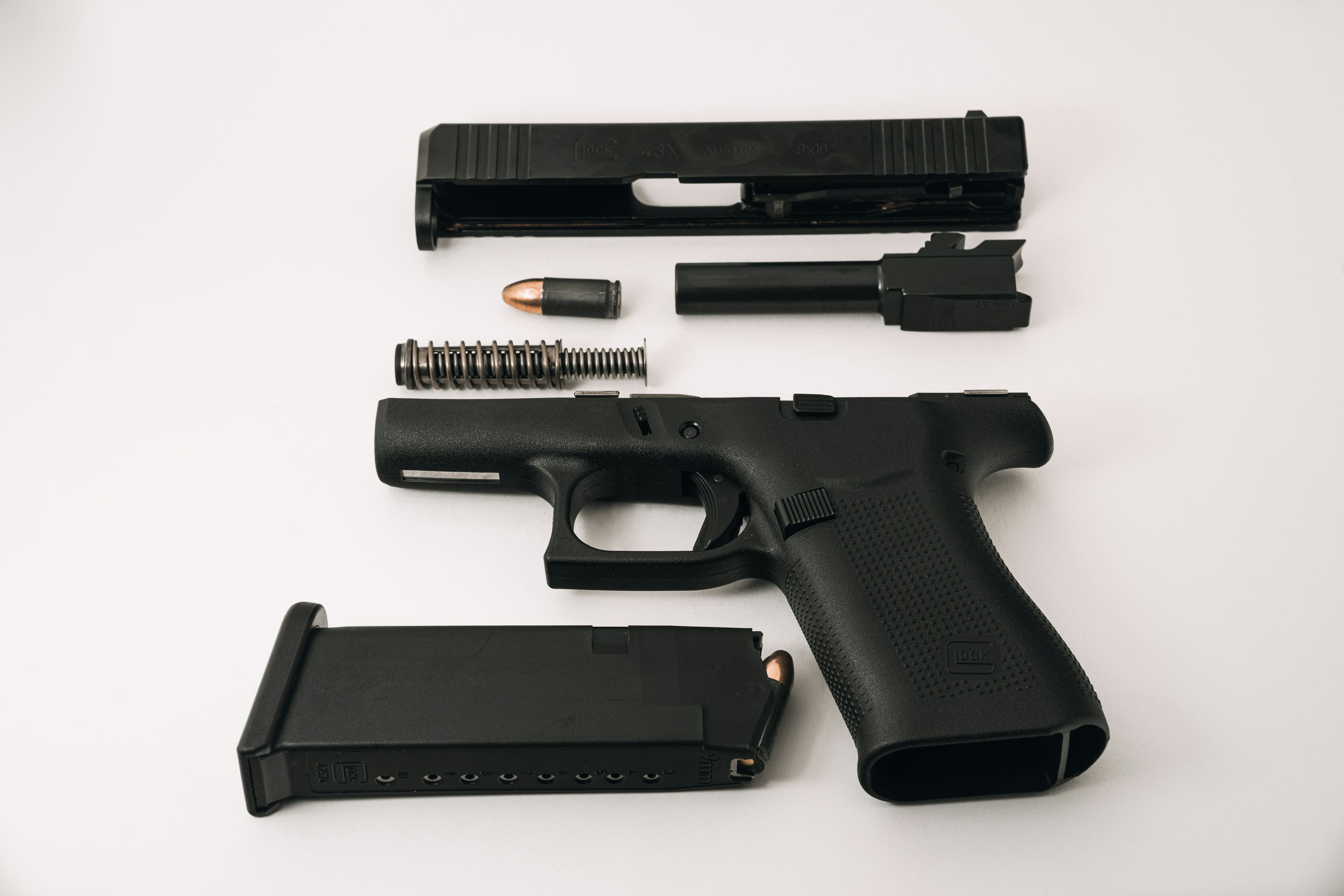
Felon In Possession of Firearm
If you have been charged with possessing a firearm as a former felon in Birmingham, contact Joe Ingram Law LLC immediately for legal counsel in your case. Let our firm defend your rights!
Birmingham Felon in Possession of a Firearm Attorney
Defending Clients’ Rights in Birmingham, Vestavia Hills, and Surrounding Communities
If you have been convicted of a felony in Alabama, you are not legally allowed to own or possess a firearm. However,Attorney Joseph A. Ingram understands that people sometimes make mistakes or are the victim of mistaken identity in situations out of their control. If you are arrested for felony possession of a firearm, you could face serious jail time and/or probation. Don’t face these charges without a skilled lawyer like Attorney Ingram by your side.
Federal Firearm Possession Law
Both federal and Alabama gun laws prohibit certain people from possessing firearms. The federal criminal code applies to people who have been indicted for, or convicted of, any state or federal crime that carries a penalty of more than 1 year in prison. Federal law also places the same restrictions on people who:
- are subject to a restraining order;
- convicted of misdemeanor domestic violence; and
- were dishonorably discharged from the military.
Those covered by this law may not possess a firearm or even ammunition that’s crossed state lines to get to them. Note that prosecutors must prove beyond a reasonable doubt that you knew the gun was in your possession (e.g. your home, car, or other property). For example, if a family member hid a gun in your home without your knowledge, you do not legally possess it and cannot be so charged.
Alabama Firearm Possession Law
Alabama state law prohibits the following individuals from owning or possessing a firearm:
- have been convicted in the state or elsewhere of committing or attempting to commit a violent crime;
- have been convicted of committing or attempting to commit a misdemeanor domestic violence offense;
- anyone subject to a valid protection order for domestic abuse;
- anyone of unsound mind.
Note that crimes of violence identified by the law in this statute are:
- Murder
- Rape
- Mayhem
- Kidnapping
- Robbery
- Burglary
- Manslaughter, except vehicular manslaughter
- Larceny
- Assault with intent to rob, ravish or murder
Drug addicts and “habitual drunkards” are also subject to this law prohibiting firearm possession.

What are the Penalties for Unlawful Possession?
To lawfully possess a concealed weapon, the law requires that a person have a state permit. Without one, a person can be charged with a misdemeanor punishable by a maximum fine of $500 and a sentence of up to 6 months in jail.
The only type of gun that is expressly prohibited by Alabama gun laws is a shotgun or rifle fashioned to look like a walking cane. Possession of a weapon like this could result in a prison sentence of up to 2 years and a fine of up to $1,000. The maximum penalty for a federal charge of being a convicted felon in possession of a firearm is 10 years in prison and a $250,000 fine.
Exceptions to Concealed Carry Permits
Even having a license to carry does not authorize carry into the following places:
- a police, sheriff or highway patrol building;
- a prison, jail, halfway house, or community corrections facility;
- a courthouse or building where the District Attorney’s office is located;
- an inpatient psychiatric or mental hospital;
- a building in which city council or county commission meetings are held;
- athletic events at schools;
- professional athletic events;
- demonstrations;
- any location barred under federal law.
Charges of illegal possession of a firearm can result in severe consequences you will have to deal with for the rest of your life. If possible, our goal at Joe Ingram Law, LLC is to fight for your defense and have your charges reduced or dismissed.
Let Joe Ingram Law, LLC Defend Your Case
In the majority of felon in possession of firearm cases, the defenses used are procedural, civil rights, and fact-based. In order to be convicted, the prosecutor must prove the defendant’s intent to possess and control the firearm. In our firm’s experience with these cases, we often find that someone other than the convicted felon was keeping a firearm in the house, usually a family member or other relative living in the house. In these scenarios, our firm can demonstrate that you had no intent to possess a firearm since the home is not your residence. Similarly, an alarming number of our cases feature clients who are accused of illegal possession of a firearm just because they were riding in a car with another person who was carrying a firearm. In these situations, Attorney Ingram can look into whether the traffic stop was legally carried out or whether the police violated your rights during their search.
In fact, Joe Ingram Law, LLC has been able to help clients get these types of cases dismissed in federal court. Take the case of United States v. Timothy Alexander Lowe:
- Our client was charged with 18 U.S.C. 922(g)(1), which is a felon in possession of a firearm. In this case, a confidential informant gave information to government agents concerning our client possessing a firearm in his vehicle. The firearm was located during the course of a traffic stop. After much investigation in the case and requesting the government to disclose the name of the informant as it related to our client’s defense, the government was unable to provide the name of the informant, and the case was thus dismissed.
Let an experienced and knowledgeable attorney handle your case. You can trust Joe Ingram Law, LLC to craft a compelling defense against your felon in possession of a firearm charge.


















































